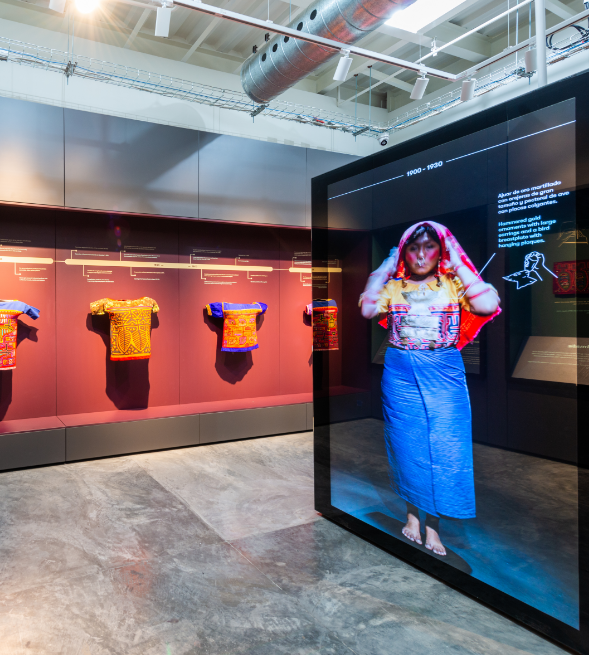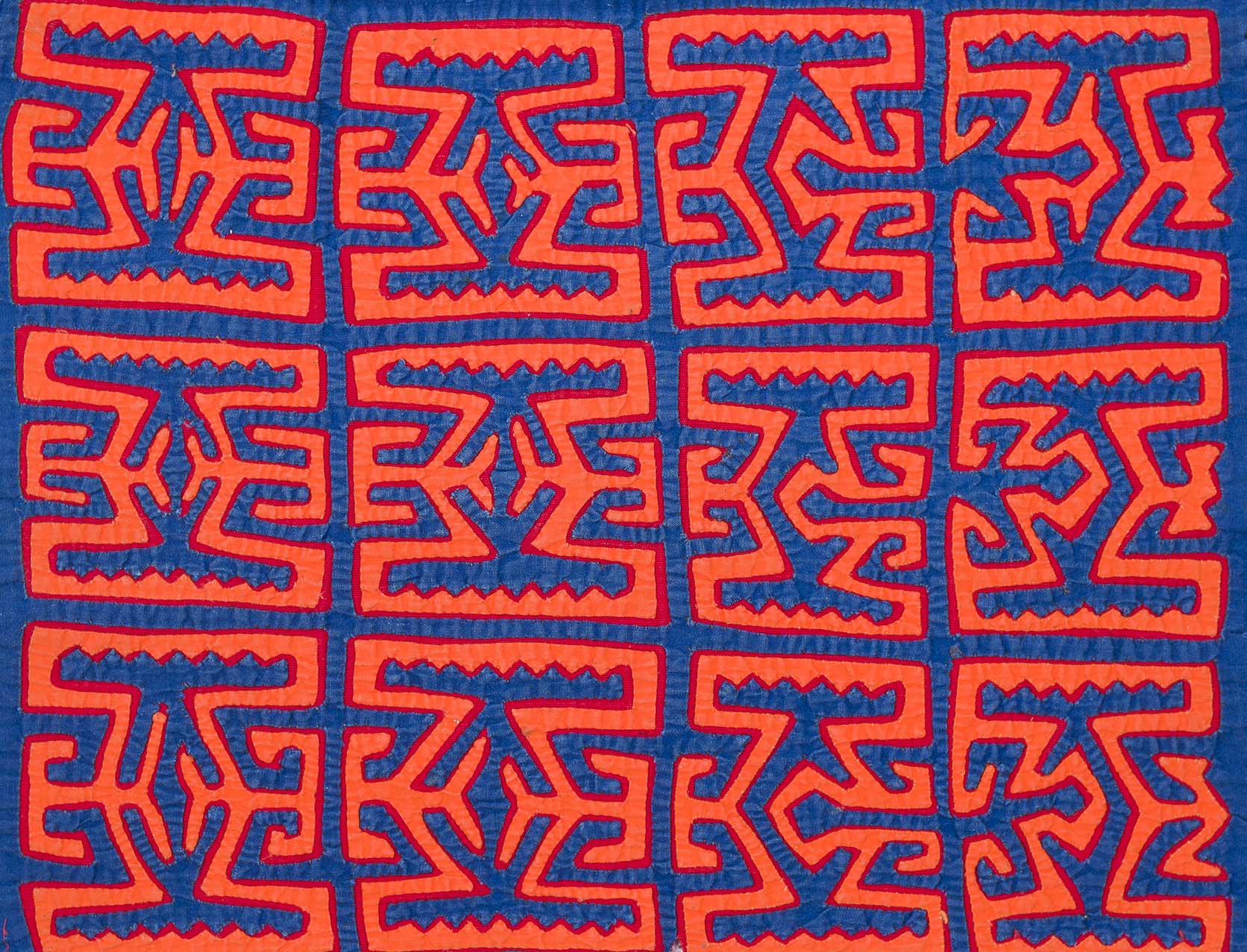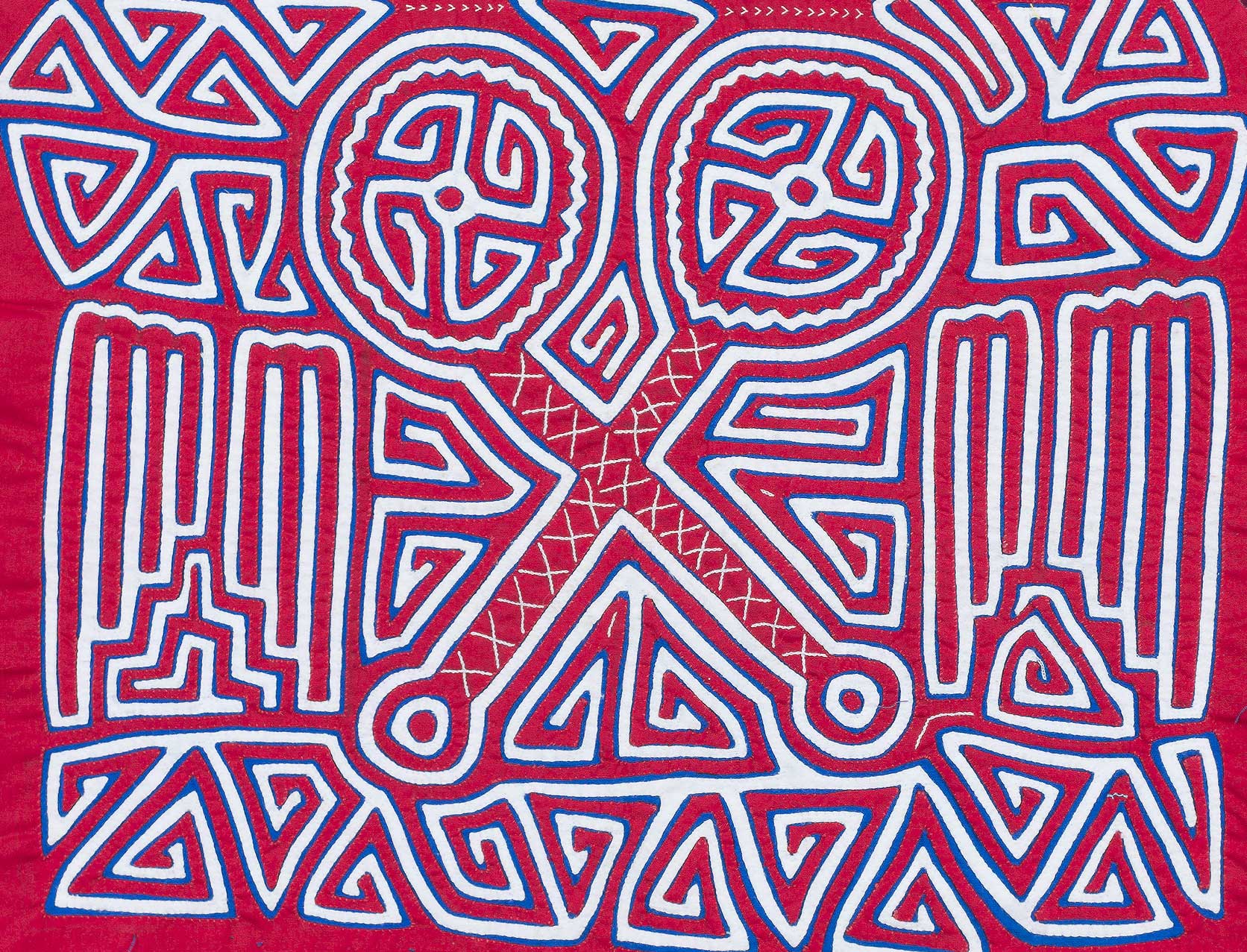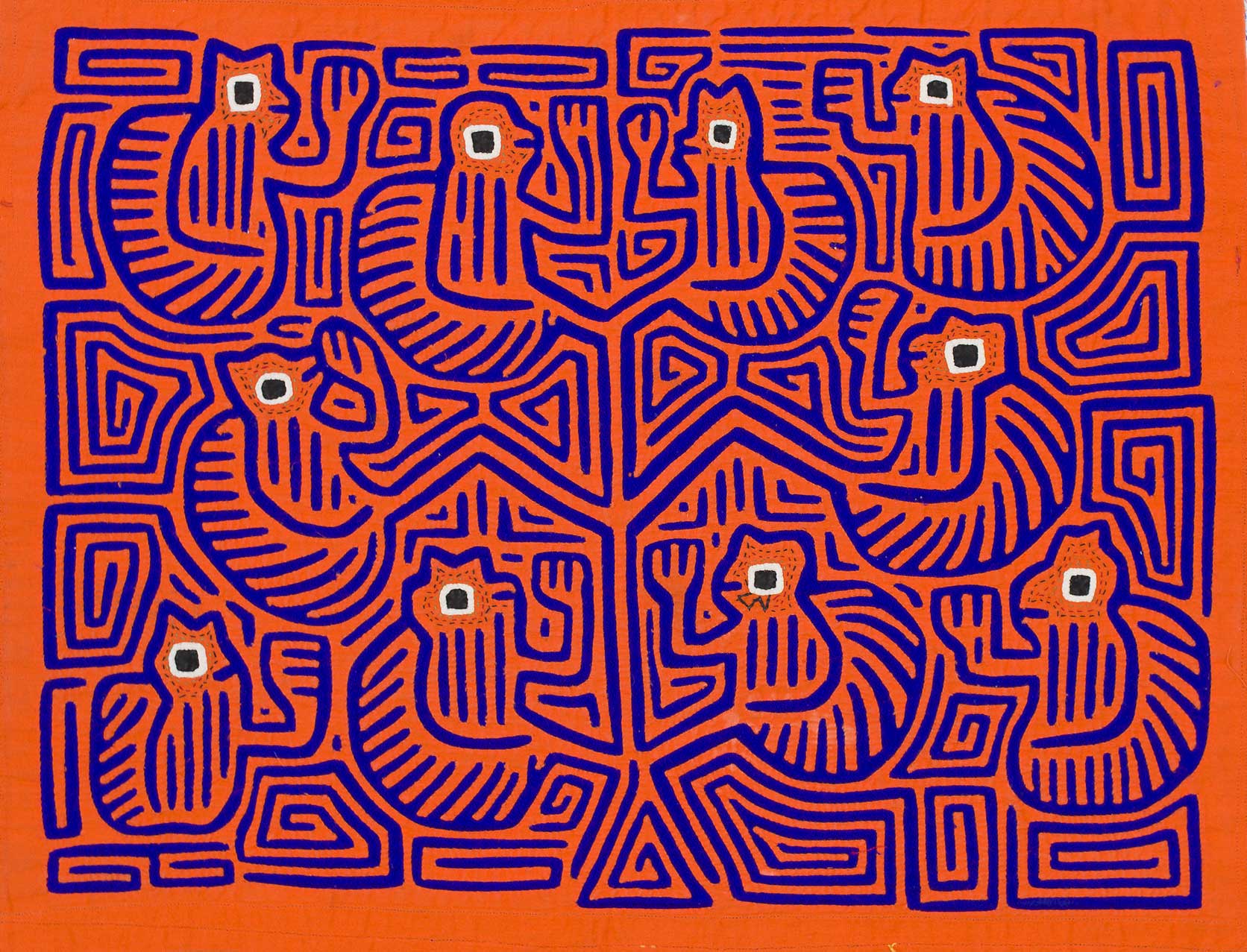Why the Museum?
The Mola Museum (MuMo) was created with the aim of having a space to appreciate the Mola as a piece of art.
MuMo is an initiative of Fundación Alberto Motta, with the support of Fundación Llopis and private art collector David de Castro.
It is endorsed by Panama’s five Guna governing councils:
- Congreso General Guna Yala
- Congreso General Guna de Madungandi
- Congreso General Guna de Wargandi
- Congreso General Guna de Tagarkunyal
- Congreso General de la Cultura Guna
MuMo is part of the Motta family legacy for contributing to the development of culture and education in Panama, two of the five pillars of the Alberto Motta Foundation.

How was MuMo conceived?
In 2017, while visiting the Textile Museum of Oaxaca, Mexico, Stanley, son of Don Alberto, wondered what had become of José Félix Llopis' collection of molas and contacted his niece Patricia Llopis who kindly made the entire collection available.
His close friend, José Félix Llopis, who represented Christian Dior in the Americas for several decades and whom Don Alberto had befriended and done business with since the 1950s, had collected a large number of molas over the years.
In 2017, during a trip to Museo Textil in Oaxaca, México, Don Alberto’s son, Stanley, was reminded of the Llopis mola collection and began inquiring about its whereabouts. Thanks to Patricia Llopis, her family and their foundation, the Llopis collection comprises a large share of the MuMo exhibits.
Why the mola?
The objective of MuMo is that through the exhibition of the collections of our promoters, visitors can appreciate and value the particular characteristics of the mola as a work of cultural art.
Alberto Motta Foundation
The Alberto Motta Foundation was established in 1997 as part of the family legacy of contributing to the social development of Panama, promoting initiatives that generate solutions to social needs and related to the five pillars of education, health, culture, environment and decent housing. These values are part of the identity of the members of the Motta family, which have been instilled and transmitted from generation to generation.
On the initiative of Don Alberto Motta Cardoze and with the support of his sons Stanley and Alberto Jr., the Emily Motta Foundation was established in 1997, in honor of his wife. In 2007, in honor of Don Alberto Motta, the family decides that the foundation will now bear his name and continue to be part of the family legacy of contributing to the social development of Panama, promoting initiatives that generate solutions to social needs and related to the five pillars education, health, culture, environment and decent housing.
Its values are those embedded in the identity of the Motta Family members, instilled and transmitted from one generation to the next.

Its cornerstone are programs and projects in the key areas of education, culture, health, the environment and adequate housing.
José Félix Llopis
(1927-2011)
Llopis was a philanthropist, diplomat, humanist and collector of Spanish art. Born in Madrid, he left for Paris at an early age, when his parents went into exile at the outset of the Spanish Civil War, and from there to Venezuela, where he started as a young journalist and translator. In Venezuela, he met Christian Dior and became the Latin America representative for this newly-formed French perfum empire. Thus he travelled throughout the Americas, introducing luxury and glamour into countries shaken by violence and failed regimes.
“…unrepentant traveler, keen observer of social reality and art collector, witnessing the political violence, art and international high society of the 20th century.”
(adapted from Manuel R. Mora, “Violencia, perfume y humo”, Turner Noema, 2010)
David de Castro
(1951-Actualidad)
David de Castro is Panamanian by birth, upbringing and, by his own admission, vocation.
He describes himself as a public relations expert (previously), identity management strategist (now); as an incipient painter, amateur musician, impressionist photographer, avid reader, Storyteller (always and, ocassionally, gossiper); as in love with children, animals, gardens and the moon; as born on the cusp of Cancer and Leo; as a folklorist (in all forms and everywhere), a Japanophile, and a mola collector since age 19 (the latter one, much needed).
He is not persuaded by “anything goes” in art. But he is convinced by “you can try ‘anything goes’, but don’t be surprised ‘if it goes nowhere’”.
José Félix Llopis
(1927-2011)
Llopis was a philanthropist, diplomat, humanist and collector of Spanish art. Born in Madrid, he left for Paris at an early age, when his parents went into exile at the outset of the Spanish Civil War, and from there to Venezuela, where he started as a young journalist and translator. In Venezuela, he met Christian Dior and became the Latin America representative for this newly-formed French perfum empire. Thus he travelled throughout the Americas, introducing luxury and glamour into countries shaken by violence and failed regimes.
“…unrepentant traveler, keen observer of social reality and art collector, witnessing the political violence, art and international high society of the 20th century.”
(adapted from Manuel R. Mora, “Violencia, perfume y humo”, Turner Noema, 2010)
David de Castro
(1951-Actualidad)
David de Castro is Panamanian by birth, upbringing and, by his own admission, vocation.
He describes himself as a public relations expert (previously), identity management strategist (now); as an incipient painter, amateur musician, impressionist photographer, avid reader, Storyteller (always and, ocassionally, gossiper); as in love with children, animals, gardens and the moon; as born on the cusp of Cancer and Leo; as a folklorist (in all forms and everywhere), a Japanophile, and a mola collector since age 19 (the latter one, much needed).
He is not persuaded by “anything goes” in art. But he is convinced by “you can try ‘anything goes’, but don’t be surprised ‘if it goes nowhere’”.


